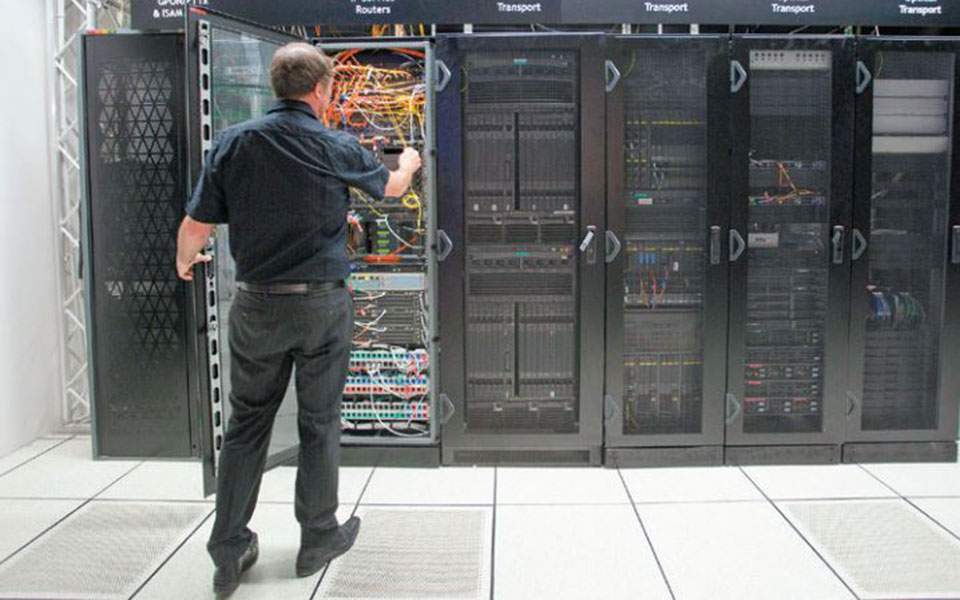All bureaucracy in one supercomputer

The oft-announced, but never implemented, transition of Greece's administration from a paperbound, cumbersome bureaucracy into a fully digital one, will be boosted by the acquisition of a supercomputer into which all ministries will eventually be connected.
The General Secretariat for Public Sector Information Systems (GSIS) will lead the administration's digital transformation aiming at simplifying bureaucratic procedures and offer better services to citizens. As a first step, GSIS will integrate its infrastructure with that of the Society of Information (also known as G-Cloud) to become the country's largest computing center, far ahead of any other.
The center's supercomputer will contain processors with 3,620 cores, 66.5 terabytes of RAM and 1,000 1TB disks. Being modular, it will constantly expand as more administration computing centers are integrated.
According to a recently voted law, the computing power of 17 ministries must be integrated into the GSIS' by January 1, 2022. Exempt are classified systems that contain information crucial to the country's security.
Also, according to the same law, all procurement of hardware and software will be concentrated into the hands of Digital Governance Minister Kyriakos Pierrakakis and the GSIS, with the other branches of the administration only being able to buy with the explicit approval of the ministry.
Another step toward bureaucratic streamlining concerns the reconnection of the Social Security E-Governance system with the Independent Authority for Public Revenue _ the tax authorities _ for purposes of verifying and cross-referencing recipients' data. The connection had been severed a year ago.
“There are many aplications that can simplify citizens' interactions (with the administration) and, at the same time, improve public sector productivity,” said GSIS chief Demosthenes Anagnostopoulos, adding that the volume of data exchange will gradually, and steadily, increase.
Anagnostopoulos also notes that the exchange of data will not be at the expense of privacy, since the General Secretariat's supercomputer will be used to direct data traffic and not for storage.
For example, the Ministry of Justice may inform another administration agency that candidate X can be hired, but will not notify either that agency or GSIS that the candidate does not have a criminal record (a precondition for being hired in the public sector). This handling of information also saves on computing power and storage space, Anagnostopoulos says.
The same goes for all kinds of income support to lower incomes; the system is not interested in a particular citizen's exact income but only whether he or she fulfills the criteria to receive such state support.





